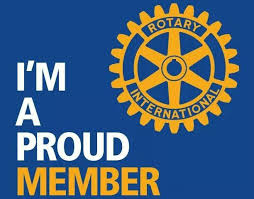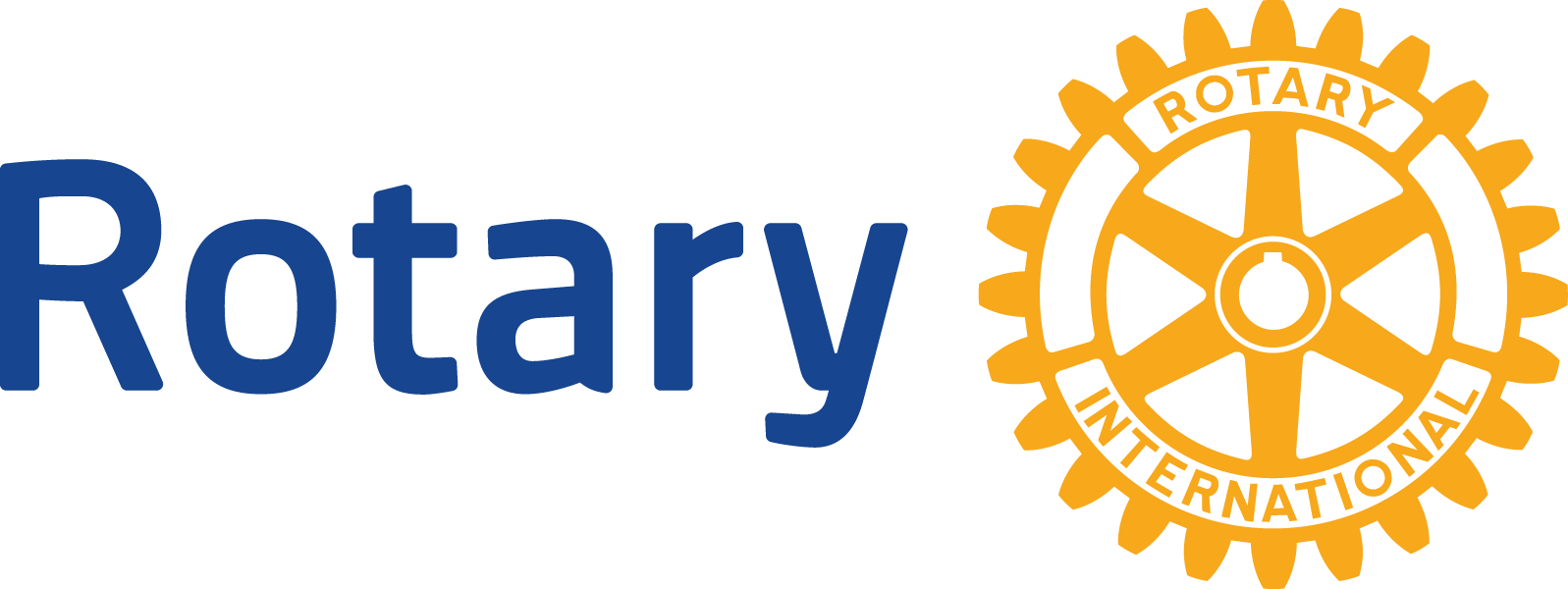
Before I get to my Rotary Proud Moment, I’d like to mention some impacts Rotary had on me long before I became a Rotarian.
I was raised in a small town in upstate NY in an age when free-range parenting was the norm. In the ’50s, when I was probably 7 or 8 and home from school on summer vacation, a neighbor friend and I decided that, after lunch, we’d ride our bicycles into town and back. Certain that such a feat was worthy of a reward, I plotted to mooch to some small change from my father for (he was a soft touch) to spend at the downtown Sweet Shop.
I was at the table at noon sharp, waiting for my dad to arrive for his lunch hour. 12:05 no dad. 12:10 no dad. Finally, I asked my mom when he’d be home. She gave me the official exasperated mother look and said, “Don’t you remember - your father has Rotary every Tuesday!” Well I didn’t remember, but from then on I did, and as you can plainly see, the first impact Rotary had on my young life was to screw me out of an ice cream cone.
However, my hometown Rotary club more than made up for it years later. In the early ’70s, I headed to Alaska to work as a surveyor on the construction of the trans-Alaska pipeline. Much to my mother’s unending and frequently voiced chagrin, I didn’t come home from Alaska to visit for nearly 3 years.
When I finally did come home, my dad thought that Rotary would be interested in hearing about Alaska and the pipeline. So, from the mid 70’s up until he died in 1992, I would often be a luncheon speaker when I was in town. The club acknowledged its speakers with a preprinted 8x11 certificate of thanks, filled in with your name, and signed and dated by the club secretary. Fortunately, in those early years, I hung on to them.
After the pipeline was built, I got interested in a mining career and enrolled at the University of Alaska Mining Engineering School but was dismayed to find that I’d have to take a speech class. I went to my dean, who said that I could file a petition for a waiver but added that “no one, but no one, ever gets out of speech class at UAF.” However, I figured that I had 2 things going for me. First, I had a handful of Rotary speaker certificates, and, second, that if I got out of speech class, I was going to take thermodynamics. Much to my dean’s astonishment, the waiver was granted.
Much later, upon realizing that the University had a large Rotary club, I suspected the success of my petition might well have been due to a sympathetic Rotarian or two on the committee. Alternatively, they may have simply concluded that anyone who voluntarily took thermodynamics as an elective should not in any way be encouraged to do public speaking.
Eventually, in the mid-’90s, I followed in my father’s footsteps and joined Rotary. Much like Dubuque, the Fairbanks Rotary club has well over 100 members, holds a variety of fundraisers, supports foreign exchange students, and funds numerous community organizations and projects. (Just as an aside, I’ll mention that while Dubuque Rotary built a gazebo on the banks of the Mississippi – something that has no moving parts, Fairbanks Rotarians chose to build a clock tower for their river-front park. As far as I know, no one pesters Dubuque Rotary about fixing the gazebo, but, to this day, I expect the Fairbanks club is bedeviled trying to find someone to repair that damned clock.)
Like all local service clubs, we Rotarians take pride in everything we have done for communities. However, what I find especially intriguing is what the family of International Rotary clubs has accomplished through our Foundation. I find it remarkable that most working men and women in Rotary clubs sprinkled around the globe could play such a disproportionate role in eliminating a disease like polio. And, despite the billions in foreign aid spent by governments and organizations over decades, Rotary Clubs today are funding and undertaking projects that address the most basic and the most fundamental of human needs, such as digging wells to provide villagers with clean drinking water. I am immensely proud to have contributed to these efforts.
As a final note, my grandfather was also a Rotarian, though he died before I began attending luncheons. It wasn’t until I became a Rotarian myself that I finally understood something that had always puzzled me. At my grandfather’s house – on the wall just outside his office - hung a framed embroidery which I presume had been stitched by my always down-to-earth grandmother. The design was of a wheel, which, only in adulthood, did I realize was meant to represent the Rotary logo. It had banners above and below that read,
“Blessed are those who run in circles, for they shall be known as big wheels.” That’ll be two bucks: Pocket change for a room full of big wheels.
